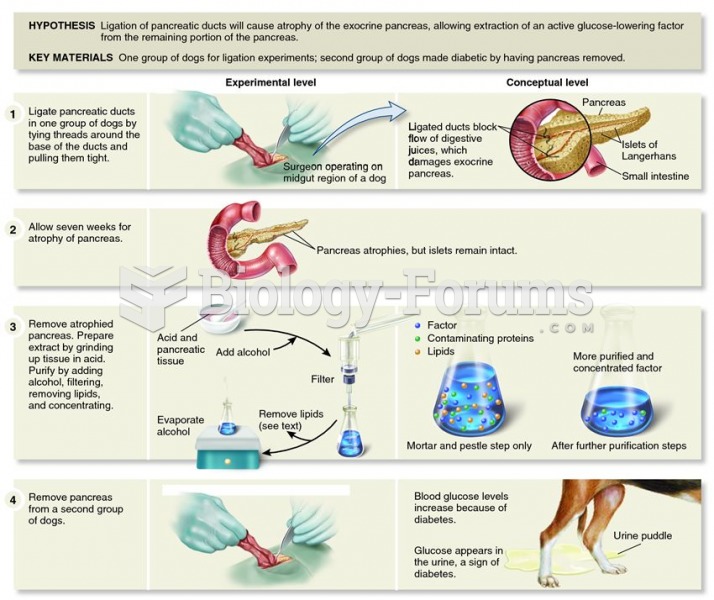Answer to Question 1
3,4
Rationale 1: Wine does not have to be eliminated from this patient's diet.
Rationale 2: The amount of wine permitted is not unlimited.
Rationale 3: Alcoholic beverages should be consumed along with a complete meal.
Rationale 4: Alcoholic beverages should be limited to one per day.
Rationale 5: Large amounts of milk would also interfere with the patient's glucose control.
Global Rationale: Alcoholic beverages should be consumed along with a complete meal and should be limited to one per day. Wine does not have to be eliminated from this patient's diet, but the amount of wine permitted is not unlimited. Large amounts of milk would also interfere with the patient's glucose control.
Answer to Question 2
1
Rationale 1: Assessing the client's blood pressure is appropriate because Chianti wine is high in dietary tyramine. This can result in a hypertensive crisis when combined with an MAOI drug. So the nurse must check the client's blood pressure. It is important to discuss the effects of alcohol and antidepressants, but physiological assessment takes priority over education.
Rationale 2: Discussing the effects of wine on the action of antidepressants is incorrect because while it is important to discuss the effects of alcohol and antidepressants, physiological assessment takes priority over education. Likewise, alcohol can increase the symptoms of depression, but physiological assessment takes priority over education.
Rationale 3: Arranging for admittance to the psychiatric unit is incorrect because admittance to the psychiatric unit is not appropriate at this time; there is no evidence that the client is suicidal.
Rationale 4: Discussing how food can increase the symptoms of depression is incorrect because while alcohol can increase the symptoms of depression, physiological assessment takes priority over education.
Global Rationale: Assessing the client's blood pressure is appropriate because Chianti wine is high in dietary tyramine. This can result in a hypertensive crisis when combined with an MAOI drug. So the nurse must check the client's blood pressure.






